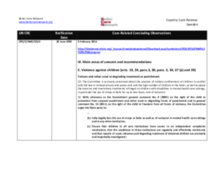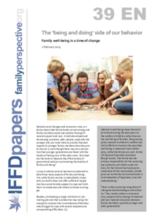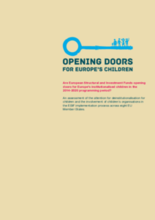

Displaying 1441 - 1450 of 1649
The Labour government in the UK will announce a new plan to improve child protection policies, according to this article from the Guardian.
Tristram Hunt, shadow education secretary in the UK, will be announcing a series of new measures to support children and families, including offering new “kinship rights” to children in the care of their siblings, grandparents, or other relatives.
The University of Copenhagen Department of Economics is conducting an externally funded research project on the effectiveness of interventions for children living in out-of-home care.
This country care review includes care related Concluding Observations adopted by the Committee on the Rights of Persons with Disabilities and the Committee on the Rights of the Child.
This paper provides a brief overview of basic family structures in EU countries and a description of family breakdown and its impact on children’s wellbeing.
This paper discusses and examines the lessons learned from the Munro Review relevant for looked after children. The Munro Review provides an analysis of the current state of the child protection system, challenging bureaucratised practice and arguing for a reclaiming of professional social work identity, knowledge and understanding.
This report is based on the outcomes of a survey addressed to eight National Coordinators of the Opening Doors campaign. It aims to assess the extent to which EU Member States have used ESIF to catalyse child care systems reform.
The government of the U.K. is considering new legislation that would permit children to remain in residential care until the age of 21, says this article from Community Care.
A high-profile inquiry into the treatment of unmarried mothers and their babies by 14 State-linked religious institutions in Ireland from 1922-1998 was launched on 9 January, 2015. However, tens of thousands of people affected by this crisis may be excluded from the inquiry, says the article.
A child in the UK was removed from his parents’ custody nine months prior to the publication of this article.



